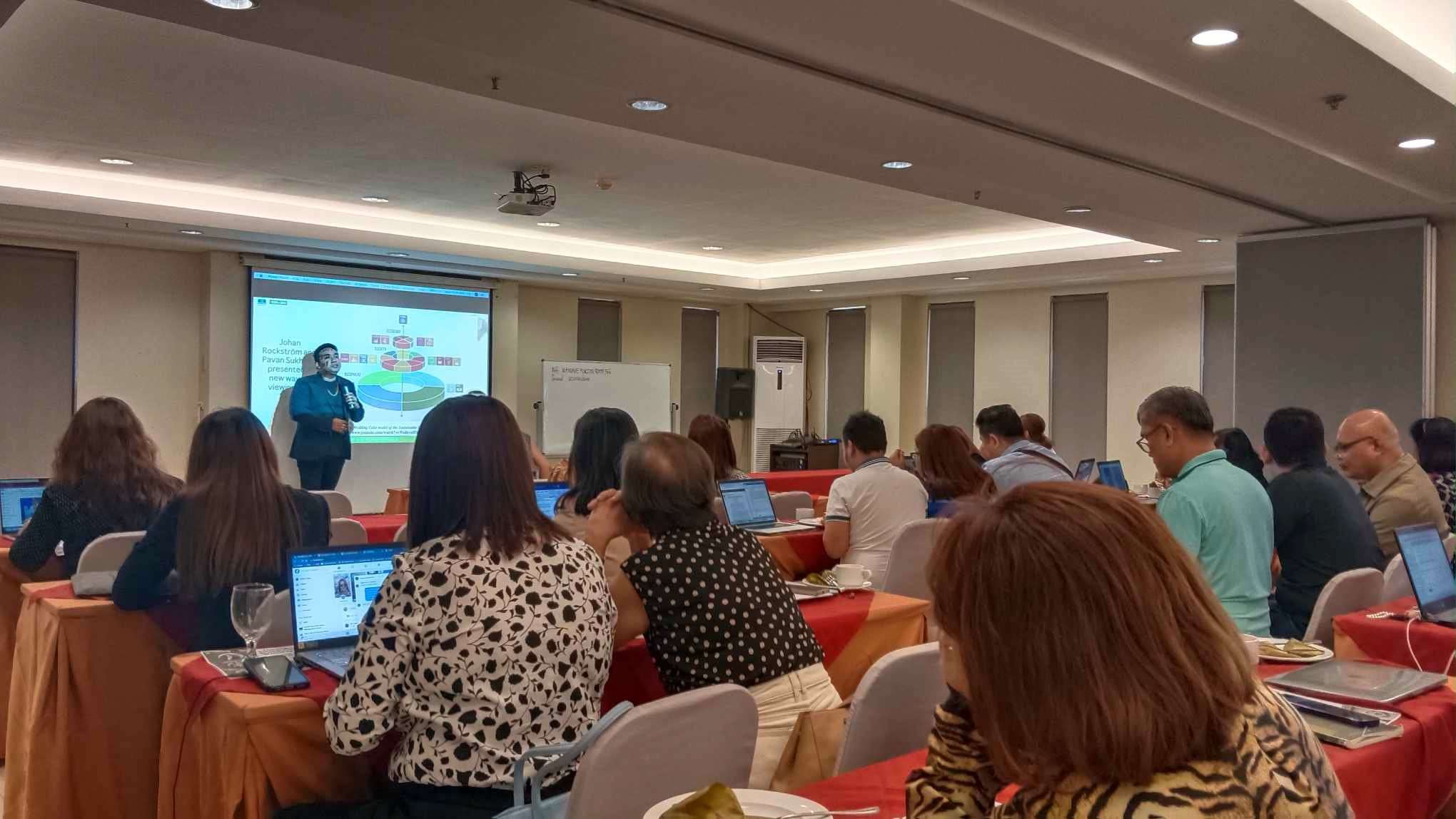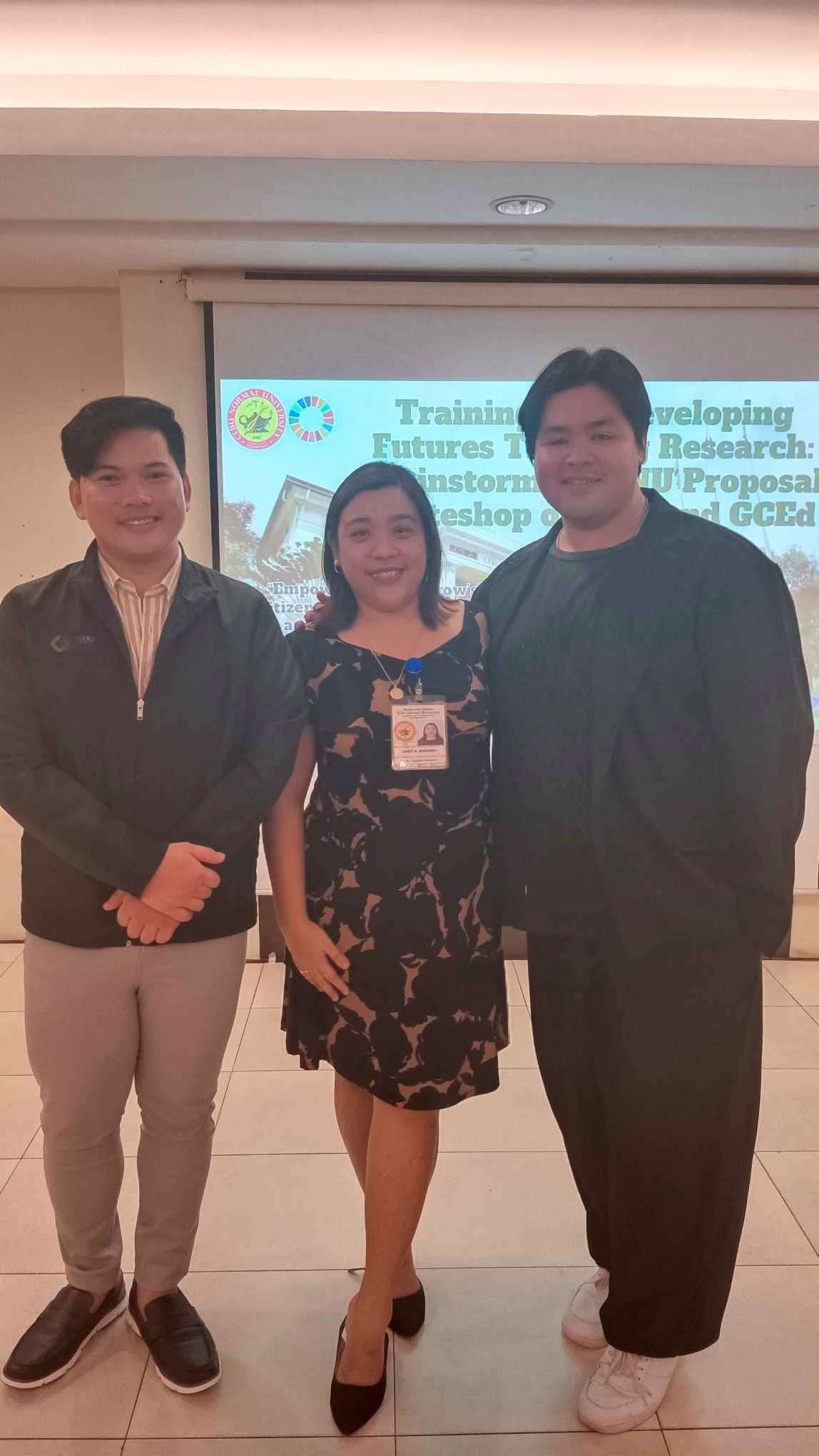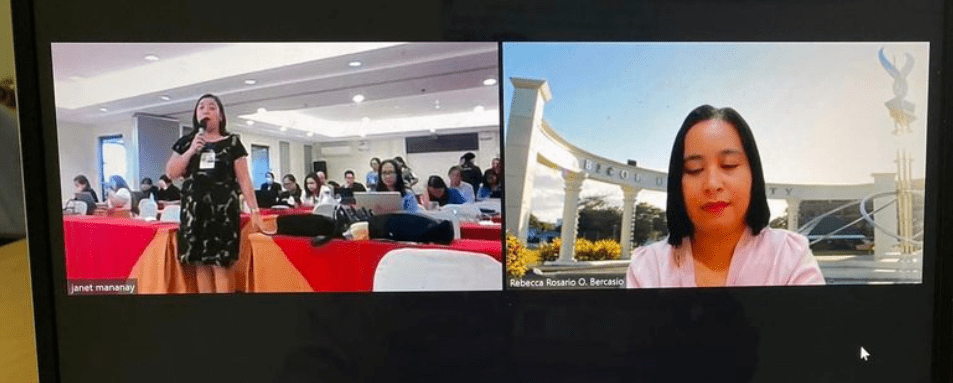Cebu Normal University (CNU) — spearheaded by the Education for Sustainable Development (ESD) Office — successfully conducted a three-day workshop entitled “Training and Developing Futures Thinking Research: Brainstorming CNU Writing Proposal Writeshop on ESD and GCEd.” This workshop is also supported by the Planning, Foresight, and Futures Thinking Unit and was participated by administrative officials, Department and College Chairs, and non-teaching staff representatives.

The workshop began last November 13 with ESD Fundamentals, Framework, and Implementation. This was facilitated by the Interim President of the Cagayan de Oro College — Dr. Jestoni Babia. During the workshop, Dr. Babia recalled on how CNU was given the opportunity to integrate ESD into existence in the country. He also introduced different ESD frameworks — including the Asia-Pacific ESD Teacher Competency Framework which he co-created with Dr. Ethel Abao, the former CNU CTE Dean — as well as different analyses on ESD. The facilitator encouraged the participants to determine the root problems and causes of poor quality education through the Problem Tree Analysis. Most of the participants agreed on different leadership priorities as well as poor strategic planning to be such issues. Furthermore, Dr. Babia emphasized the importance of institutionalizing ESD and recognizing CNU’s ESD stakeholders. At the end of the workshop, the participants described their ideals for ESD in CNU — to be a “High Impact Institution,” an “Internationally-recognized ESD and GCEd Center,” and to be an “ESD and GCEd Global Hub or Great Technology Hub.”

The second part of the workshop was conducted on the next day with the Introduction to GCEd and GCEd in the Philippine Context. Philippine Normal University professor and GCED Cooperation Centre (GCC) Philippines Deputy Director — Prof. Carl Dellomos — facilitated the workshop. Prof. Dellomos focused on orienting the participants about the importance of integrating GCEd into the educational framework and how its effective implementation must extend, not only to faculty and students, but to administrative offices and the non-teaching staff. The participants were tasked to conduct a GCEd SWOT analysis and the facilitator gave out pointers on how their respective offices can contribute to the GCEd integration in CNU. Dr. Janet Mananay, GCEd Region 7 focal person reiterated that these will be the spring board for GCED initiatives in the university.

Additionally on the 2nd day, Dr. Rebecca Rosario Bercasio — Director of the Bicol University’s Center for Teaching Excellence — inspired the participants by sharing Bicol University’s best practices in GCEd implementation. She joined virtually via Zoom and discussed about their Regional Training on GCED in Bicol — which aims to transform teachers and transform communities — as well as their Project MENTOR (Motivate, Engage, Nurture, Team-up, Organize, and Reflect). One of the highlights from her presentation includes Bicol University’s pursuit for GCEd during the pandemic. Dr. Bercasio also shared Bicol University’s lessons and ways forward with the GCEd agenda.
Through these engagements, the participants were able to present their GCEd SWOT analyses as well as take on a logic frame for possible GCEd activities on the third and final day on November 15.
Each workshop had an open forum where the participants were given the opportunity to ask questions and engage with the facilitators. To end, the closing remarks were given by Dr. Jeson Bustamante, Director of the Planning, Foresight, and Futures Thinking Unit.
With the theme, “Empowering Tomorrow’s Global Citizens and Sustainability Leaders,” this two-part workshop becomes an avenue to map out existing Education for Sustainable Development (ESD) and Global Citizenship Education (GCEd) practices of the university and aspires to ignite a collective commitment to fostering global citizens and sustainability leaders who will, in turn, guide CNU toward a more sustainable, just, and interconnected future.
As remarked by Prof. Rhoniel Ryan Ymbong, “As a student of Science, I believe in one ecological idea: The Gaia Hypothesis. It states that everything is interconnected with everything else, that the world is a super organism. When one part is nonfunctional, then the entire biosphere will face the consequences. So, let us take part and do the little ripples we can create for us to move forward.”
